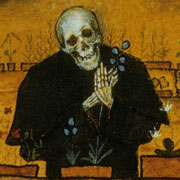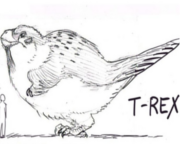|
This is hilarious. They're arguing now that Eva Bartlett lied about a little girl she said was being used as a crisis actor, which is bad because it undermines reports in the future that expose the al qaeda white helmets.
|
|
|
|

|
| # ? May 25, 2024 13:24 |
|
imagine having a brain so broken
|
|
|
|
https://twitter.com/Dannymakkisyria/status/977215299182366722
|
|
|
|
https://twitter.com/AlSuraEnglish/status/978021504465055744 This is giving me flashbacks to the first gulf war.
|
|
|
|
Good to see Assad restoring peace. Now to destroy Erdogans turkish outposts. Also hope more rockets hit Riyahd.
|
|
|
|
Absurd Alhazred posted:https://twitter.com/AlSuraEnglish/status/978021504465055744 Funny because state media reports it as a successful intercept http://www.arabnews.com/node/1273566/saudi-arabia But something about the video you posted does not strike me as a fake made in Final Cut E: That said the Houthi are amazing loving idiots. If they actually hit anything important in Riyadh at any point it just means that the US and Europe will manufacture sympathy to support the bombing of Yemen more than they tacitly already are. Attacking civilian airports or whatever isn’t exactly going to rally any support to their hopeless cause. Saladman fucked around with this message at 23:26 on Mar 25, 2018 |
|
|
|
Saladman posted:Funny because state media reports it as a successful intercept So they should just sit down and die? Because that is what the Saudis want. Really love how much this thread tows the line for wahabi fascsits.
|
|
|
|
https://gfycat.com/RelievedAshamedLeopardseal Doesn't look that successful.
|
|
|
|
|
Saladman posted:E: That said the Houthi are amazing loving idiots. If they actually hit anything important in Riyadh at any point it just means that the US and Europe will manufacture sympathy to support the bombing of Yemen more than they tacitly already are. Attacking civilian airports or whatever isn’t exactly going to rally any support to their hopeless cause. Uh lmao. The western governments currently give no fucks about Saudi Arabia's bombing campaign aside from a handful of congressmen making noises of concern. The Houthis have nothing to lose by striking the Saudis.
|
|
|
|
Striking back at the Saudis is also probably good for maintaining morale.
|
|
|
|
I'm sure the Saudi's are going to make a great big effort to draw more attention to the conflict, yes.
|
|
|
|
Saladman posted:E: That said the Houthi are amazing loving idiots. If they actually hit anything important in Riyadh at any point it just means that the US and Europe will manufacture sympathy to support the bombing of Yemen more than they tacitly already are. Attacking civilian airports or whatever isn’t exactly going to rally any support to their hopeless cause. The US and Europe already support the bombing of Yemen more than tacitly -- they provide the Saudi and Emirati coalition with intelligence, logistics, aerial refueling, weapons, and even special forces. What the Houthis are doing is trying to damage Saudi morale and cashflow. With the current upheaval of Saudi society, who knows what will happen to the ambitious and power-hungry prince if he fails to protect the country against the Houthis? What if foreign investors stop coming because they don't see Saudi airports as safe anymore?
|
|
|
|
https://twitter.com/postordinary/status/977962901368721408
|
|
|
|
Published by national enquirer lol. Did bat boy give a glowing appraisal of vision 2030
|
|
|
|
https://www.opb.org/news/article/npr-how-the-syrian-regime-keeps-winning-territory-from-an-army-defectors-perspective/quote:Dressed in a sharp black suit, Syrian President Bashar Assad smiles for selfies with his soldiers against a backdrop of blown-out buildings and a battered tank. Weary-looking men crowd around him and chant the slogan frequently heard on this side of the country’s war: “With our spirit and our blood, we will free you Bashar!”
|
|
|
|
https://twitter.com/stratsentinel/status/978013802213060608?s=21 The Saudis sure know how to wage war...
|
|
|
|
Cat Mattress posted:The US and Europe already support the bombing of Yemen more than tacitly -- they provide the Saudi and Emirati coalition with intelligence, logistics, aerial refueling, weapons, and even special forces. One missile hitting something in like 5 years of war is not going to do poo poo. Not to mention the current missile didn’t even seem to hit anything critical, if it hit anything at all. I mean Israel is fine re: investors and morale, and if anything that goes way up after a missile strike (« we are the righteous victims, gently caress those cholera-infested bastards »). If the Houthis could launch more than like one missile every six months then maybe you’d be onto something, but right now the risk of getting hit by a missile in Riyadh is about the same as being hit by a falling Chinese space station in Riyadh. Actually getting hit also would likely mean a ground troop response and I’m sure the Saudis can find someone to die in their war without too much trouble. When has a one-off strike literally EVER done anything useful except galvanize the enemy? Doolittle’s Run? But that’s not a great comparison since it was backed up by a much bigger looming threat so it was more like foreshadowing. Has a hopeless rebel force ever won out by doing something like that? I mean the Saudis are happy to turn North Yemen into an even shittier version of the Gaza Strip. In real life the underdog usually gets torn to shreds. E: Kind of curious on Al-Saqr's personal take on this, if he's still around in this thread. Saladman fucked around with this message at 08:00 on Mar 26, 2018 |
|
|
|
The Saudi's have already shown that they are incapable of defeating the Houthi's with conventional military force, hence the total war tactic now employed by the Saudi's of a starvation blockade. Despite this war crime the West is still tacitly supporting the Saudi's which leaves propaganda as an ineffective tool for the Houthis. Hence the only effective means of defence for the Houthis is to give the Saudis a big enough bloody nose that continuing the war becomes untenable. Missile attacks on Riyadh can accomplish that goal.
|
|
|
|
Yeah, the Houthis only long-term hope is increasing tensions and worldwide attention. It won't make them win by any imagination (see Israel and Palestine) but in the short-term the goal is surviving the blockade. Due to the West tacitly supporting MBS the conflict has just become way too sanitized in the media. Firing rockets at Riyadh goes along way to reminding people what is actually going on.
|
|
|
|
Crowsbeak posted:Good to see Assad restoring peace. Now to destroy Erdogans turkish outposts. Crowsbeak posted:So they should just sit down and die? Because that is what the Saudis want. Really love how much this thread tows the line for wahabi fascsits.
|
|
|
|
Throatwarbler posted:https://www.opb.org/news/article/npr-how-the-syrian-regime-keeps-winning-territory-from-an-army-defectors-perspective/ Thats an interesting article. Assad's strategy of offering safe passage to Idlib from every other rebel enclave if they surrender does seem to be a sound one, its definitely reducing the frequency of costly last stands. Stuffing more and more rebel groups from different original areas into Idlib also probably increases the potential for rebel-on-rebel clashes too, along with straining supplies in the province. I wonder which of the Jayrud or Homs pockets will be next to fall, after Duma.
|
|
|
|
It is simple, Wahabis and their supporters bad. Those who oppose them, good.
|
|
|
|
Crowsbeak posted:It is simple, Wahabis and their supporters bad. Those who oppose them, good. You're half right which gets you zero for partial credit.
|
|
|
|
Crowsbeak posted:It is simple, Wahabis and their supporters bad. Those who oppose them, good. This isn't simple, it's simplistic. Here's an example to illustrate: "Soviets and their supporters bad. Those who oppose them, good." 
|
|
|
|
Cat Mattress posted:This isn't simple, it's simplistic. See the problem here is that the Soviets and their supporters weren't bad. So you're starting from a false premise.
|
|
|
|
Crowsbeak posted:It is simple, Wahabis and their supporters bad. Those who oppose them, good. Exactly what sort of political program do you think the Houthi are fighting for [quote="“MiddleOne”" post="“482518680”"] Yeah, the Houthis only long-term hope is increasing tensions and worldwide attention. It won’t make them win by any imagination (see Israel and Palestine) but in the short-term the goal is surviving the blockade. Due to the West tacitly supporting MBS the conflict has just become way too sanitized in the media. Firing rockets at Riyadh goes along way to reminding people what is actually going on. [/quote] Worth noting the Houthi have long tried to bring the war to Saudi soil. Their raids have penetrated deep across the border and displaced tens of thousands of Saudi civilians. Presumably none of the princes in Riyadh give poo poo about what happens to poor customers country folk in the south though so these missile attacks might have more effect on the opinions of those who matter.
|
|
|
|
Squalid posted:Worth noting the Houthi have long tried to bring the war to Saudi soil. Their raids have penetrated deep across the border and displaced tens of thousands of Saudi civilians. Presumably none of the princes in Riyadh give poo poo about what happens to poor customers country folk in the south though so these missile attacks might have more effect on the opinions of those who matter. Yeah it's the old adage of car versus plane accidents. If you're a dangerous but predictable threat, people will respond rationally. If you're an extremely unlikely but unpredictable threat in which the person has no real agency over the outcome, people loving lose their poo poo. The missiles, while not a very effective tool of warfare, are extremely effective at making the people with power grow war-weary.
|
|
|
|
MiddleOne posted:Yeah it's the old adage of car versus plane accidents. If you're a dangerous but predictable threat, people will respond rationally. If you're an extremely unlikely but unpredictable threat in which the person has no real agency over the outcome, people loving lose their poo poo. The missiles, while not a very effective tool of warfare, are extremely effective at making the people with power grow war-weary. It can definitely cut the other way though. What was once a war of choice fought over regional influence becomes a war to eliminate or severely curtail the capabilities of a group that's demonstrated their ability to threaten the capital. Yes, of course Saudi Arabia has a vastly greater ability to inflict punishment on Yemenis than vice versa, and has been using it, but people waking up to a new vulnerability from an outside threat aren't likely to care much about that part of it.
|
|
|
|
Crowsbeak posted:It is simple, Wahabis and their supporters bad. Those who oppose them, good. Lmao, the enemy of your enemy is not your friend. Assad is a dictator who oversees a corrupt, repressive hellhole where the people have no hope for a future, and the Houthis are Islamic fundamentalists who happen to be Shia instead of Sunni.
|
|
|
|
Saladman posted:
What is there to say? The houthis have successfully held off every non-direct invasion efforts to defeat them. as I said from the start, because they're trained by Iran, they're going to be very difficult to dislodge, and as I also said, the only way forward is to either humiliatingly come to some kind of settlement or march in there and take sanaa physically, the problem is, the the saudi government started a war they didnt have solid plans for based on the assumption that they can snap their fingers and Pakistan or Egypt will do the groundwork for them for free, which they didnt, and they thought that eventually they can buy off Saleh and he'd win for them from the inside, but the houthis were on top of him and disposed of him super quick. and now they're stuck so instead they literally starved out the Yemenis in a really bad fashion. so now the government has to make sure that this missile incident doesn't happen that often so that people can turn a blind eye to their failures. Although I will say that by and large saudi citizens have been lulled into a sense of security because they really haven't felt the actual effects of regional conflicts since the gulf war, so it should be interesting to see how it reacts if the houthis keep at this. But I will say that saudi's are so propagandized and sectarian I would not expect any kind of anti-war sentiment to come up anytime soon. Al-Saqr fucked around with this message at 17:34 on Mar 26, 2018 |
|
|
|
Al-Saqr posted:What is there to say? The houthis have successfully held off every non-direct invasion efforts to defeat them. as I said from the start, because they're trained by Iran, they're going to be very difficult to dislodge, and as I also said, the only way forward is to march in there and take sanaa physically, the problem is, the the saudi government started a war they didnt have solid plans for based on the assumption that they can snap their fingers and Pakistan or Egypt will do the groundwork for them for free, which they didnt and now they're stuck so instead they literally starved out the Yemenis in a really bad fashion. so now the government has to make sure that this missile incident doesn't happen that often so that people can turn a blind eye to their failures. Thanks, that's exactly what I was wondering re: your second paragraph.
|
|
|
|
Sinteres posted:It can definitely cut the other way though. What was once a war of choice fought over regional influence becomes a war to eliminate or severely curtail the capabilities of a group that's demonstrated their ability to threaten the capital. Yes, of course Saudi Arabia has a vastly greater ability to inflict punishment on Yemenis than vice versa, and has been using it, but people waking up to a new vulnerability from an outside threat aren't likely to care much about that part of it. Saudi Arabia is already in total war with the Houthis, there is no way to escalate more than they've already done because if they could they would have already. MiddleOne fucked around with this message at 18:20 on Mar 26, 2018 |
|
|
|
MiddleOne posted:Saudi Arabia is already in total war with the Houthis, there is no way to escalate more than they've already done because if they could they would have already. This isn't total war, and it takes a real optimist to say things can't get any worse. I'm not saying the missiles necessarily are counterproductive, but I think it's at least as likely that they'd convince Saudi policymakers they can't give up on the war as they are to convince anyone they need to make peace.
|
|
|
|
 quote:A Houthi leader hailed the attack, which took place as Yemen marked the third anniversary of the start of the war. I don't think that something like the above would de-escalate the situation. Far from it. On the other hand, it's not like they can do anything else.. Dante80 fucked around with this message at 21:54 on Mar 26, 2018 |
|
|
|
cochise posted:https://gfycat.com/RelievedAshamedLeopardseal Normally you salvo fire off a few interceptors to increase the odds of a successful intercept. That being said they also claimed to successfully shoot down a missile whos warhead landed on their airport a few months ago. That time it was a Pac-2 system that failed to intercept not the most modern system out there (early 90s). This time it looks like at least two interceptors failed shortly after launching. One that blew up shortly after launch and another that rammed the ground.
|
|
|
|
WhiskeyWhiskers posted:See the problem here is that the Soviets and their supporters weren't bad. So you're starting from a false premise. The Soviets and their supporters killed as many as 2 000 000 people in Afghanistan and drove the survivors to flee the country to live in pakistani refugee camps where their children were educated by wahhabbis (that's the origin of the Taliban to a large extent). Their anti-insurgency strategy mostly came down to attacking and destroying the nearest villages as retaliation for soviet casualties. During the war almost all infrastructure in the south and east of the country was destroyed and the country lost more than half of its population. No one deserves more blame for the destruction of that country than the soviets and their supporters. Randarkman fucked around with this message at 22:37 on Mar 26, 2018 |
|
|
|
Randarkman posted:The Soviets and their supporters killed as many as 2 000 000 people in Afghanistanand drove the survivors to flee the country to live in pakistani refugee camps where their children were educated by wahhabbis (that's the origin of the Taliban to a large extent). Their anti-insurgency strategy mostly came down to attacking and destroying the nearest villages as retaliation for soviet casualties. During the war almost all infrastructure in the south and east of the country was destroyed and the country lost more than half of its population. No one deserves more blame for the destruction of that country than the soviets and their supporters. Does anyone know how the Hazara aligned during the Afghan civil war, and back during soviet occupation?
|
|
|
|
Coldwar timewarp posted:Does anyone know how the Hazara aligned during the Afghan civil war, and back during soviet occupation? Off the top of my head I can't remember if they figured that much into the whole thing at all, I seem to remember having read about some Hazara islamist mujahideen being active during the civil war*, but can't quite remember how they aligned, maybe with the northern alliance (who were supported by Turkey and Iran for a time during the 90s, and I am pretty sure the hazara islamists were aligned with Iran). I think the DRA mostly drew its support from Pashtuns, Tajiks and Uzbeks, again with the Hazaras not figuring much into it. You have to remember that the DRA was essentially a regime drawn from the military, particularly the officer corps, many of whom had been educated in the Soviet Union during the 60s and 70s, that's where socialism, or what passed for socialism, had any support at all in Afghanistan. after the war and when the DRA government (which became an Islamic republic shortly after the Soviets left) began to fall apart in the early 90s alot of army units essentially went into business for themselves and ended up aligned with various mujahideen groups in a number of bewildering ways. *well, to be correct Afghanistan has been in a civil war going all the way back to 1978, it hasn't ever really stopped. The Taliban were still fighting the northern alliance and other hostile groups in 2001, in fact it was those groups who did alot of the ground work (made possible by US airpower) during the US invasion. Randarkman fucked around with this message at 22:53 on Mar 26, 2018 |
|
|
|
Randarkman posted:Off the top of my head I can't remember if they figured that much into the whole thing at all, I seem to remember having read about some Hazara islamist mujahideen being active during the civil war*, but can't quite remember how they aligned, maybe with the northern alliance (who were supported by Turkey and Iran for a time during the 90s, and I am pretty sure the hazara islamists were aligned with Iran). I think the DRA mostly drew its support from Pashtuns, Tajiks and Uzbeks, again with the Hazaras not figuring much into it. You have to remember that the DRA was essentially a regime drawn from the military, particularly the officer corps, many of whom had been educated in the Soviet Union during the 60s and 70s, that's where socialism, or what passed for socialism, had any support at all in Afghanistan. after the war and when the DRA government (which became an Islamic republic shortly after the Soviets left) began to fall apart in the early 90s alot of army units essentially went into business for themselves and ended up aligned with various mujahideen groups in a number of bewildering ways. Thanks. Looked into it a bit and they were on all sides, but the communists tried to recruit ethnic minorities for the same reason as Assad does Christians and Druze(and should have with Kurds). Just wondered about them in that context and apparently it’s sort of the same idea. So far Directorate S is pretty good if anyone was on the fence.
|
|
|
|

|
| # ? May 25, 2024 13:24 |
|
Volkerball posted:Published by national enquirer lol. Did bat boy give a glowing appraisal of vision 2030 National Enquirer is owned by a major Trump supporter and has always been right wing / authoritarian in nature. They supported the Nazi's in the 30's along with the Daily Mail.
|
|
|



























